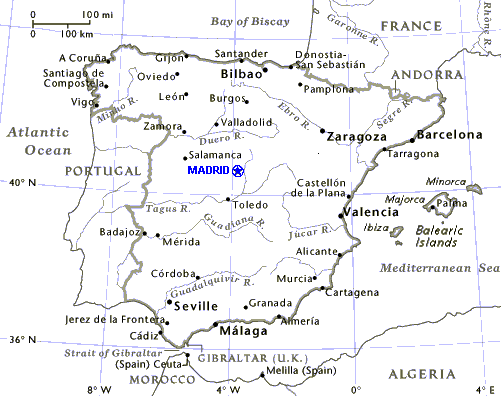Area
Population
Religion
Language
Literacy
Life Exp.
Gen. Francisco Franco wielded power from 1936 until his death in 1975, when Juan Carlos became king. Three years later a new constitution confirmed Spain as a parliamentary monarchy. After 1986, when the Socialist Party under Felipe González Márquez led Spain into the European Union, the economy grew faster than any other member nation's. Yet the government's pro-business policies in the 1990s were blamed for widening the gap between rich and poor and for the bankruptcy of noncompetitive industries-all contributing to high unemployment. Separatist agitation born of historical regional differences, most pronounced in the Basque country and in Catalonia, still challenges national unity, but a strong national peace movement has developed to counteract terrorist activities.
Unemployment continues to be a problem, but recent economic growth makes the country's future outlook more positive. Spain is one of the 11 European nations participating in the euro currency
